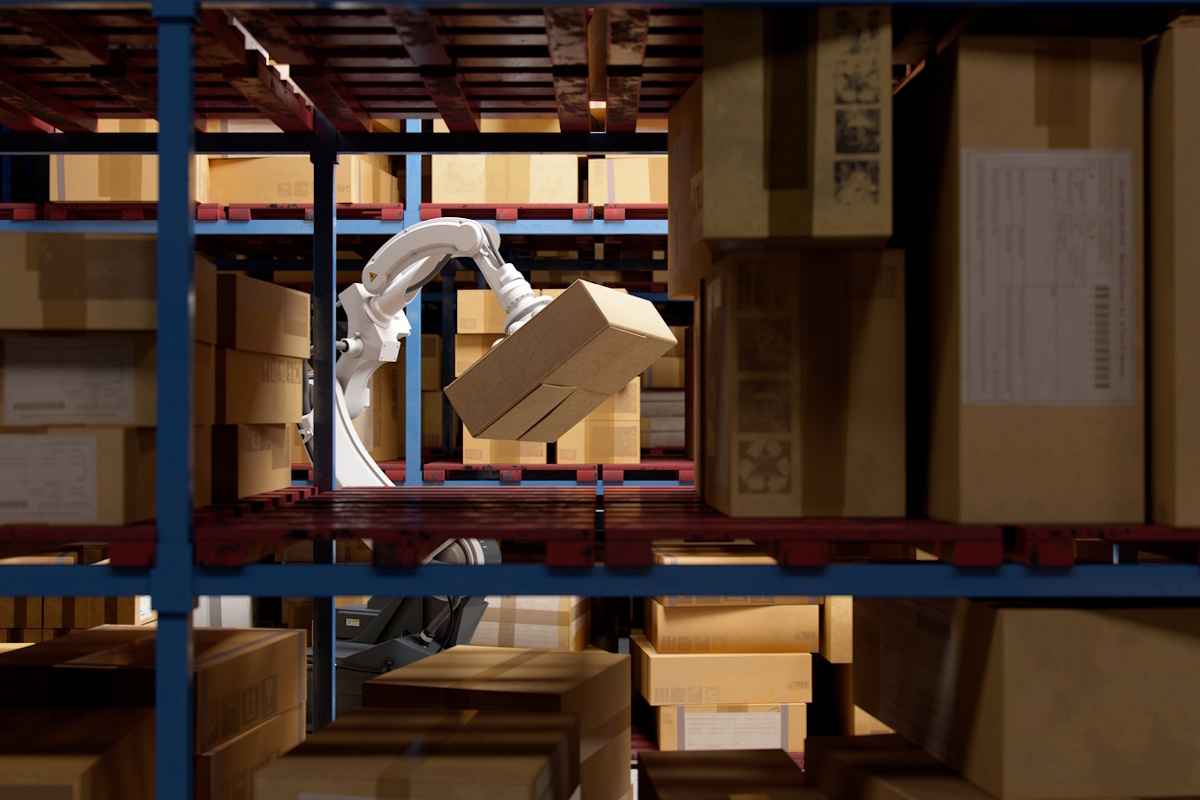Industry 4.0 and industrial warehouse operations

Paul Harrison at AutoStore describes how Industry 4.0 is revolutionising industrial warehouse operations
Industry 4.0, often called the "Fourth Industrial Revolution," marks a profound transformation across industries. More than a mere focus on manufacturing, this shift encompasses the integral logistics and warehousing operations that underpin it.
At its core, Industry 4.0 integrates physical and digital technologies, resulting in interconnected systems that not only communicate but also analyse data to drive informed decisions. It’s a holistic approach that ties together multiple technologies, resulting in unmatched efficiency, agility, and innovation.
To fully grasp the impact of Industry 4.0 and how it’s impacting industrial equipment and parts logistics, it’s essential to delve into its foundational elements. Let’s explore the key pillars that underpin this revolution and how they bring tangible benefits to organisations across the spectrum.
Why interoperability is crucial
In the industrial segment, the rise of Industry 4.0 has highlighted the importance of interoperability, the ability to connect and communicate between different systems, machines and software.
Through this seamless data exchange, interoperability creates a unified communication network across different industrial platforms and production channels. For businesses dealing with industrial equipment and processes, it’s not just about technology integration. It’s about revolutionising the way they work.
By connecting disparate systems, interoperability provides more sophisticated workflows, increased efficiency, and the ability to scale operations based on real-time insights. For example, with increased storage density to reduce the time used for the movement of goods, and robots storing and retrieving stock, automated systems have been proven to increase pick productivity.
Smart warehouses are more than just automation
The emergence of smart warehouses marks a significant shift towards Industry 4.0 solutions. These warehouses embody the vision of a modernised industrial sector, combining the essence of digital innovations with traditional operational setups.
Smart warehouses equipped with sensors, AI, and other cutting-edge technologies foster a modular and adaptive environment. Here, not only are machines and systems automated, but processes are being continuously developed and streamlined. A combination of tailored automation and optimisation introduces systems that learn and evolve, improving production quality, increasing efficiency and ensuring adaptability to ever-changing market dynamics.
These technologies also make automation an essential consideration to improve the conditions under which existing staff work and increase performance without adding additional labour.
Shaping the future with big data
In the ongoing evolution brought about by Industry 4.0, big data is proving to be a key driver of transformative change.
Big data is characterised by vast amounts of both structured and unstructured data that reveal critical insights when analysed correctly. For industrial companies, these insights are more than just data points. They act as catalysts to drive strategic initiatives that can improve decision-making.
By analysing historical and real-time data, warehouses can optimise inventory management, forecast demand, identify operational bottlenecks, and make data-driven decisions to improve overall efficiency.
IoT in warehouse management
The Internet of Things is about more than connecting everyday devices to the Internet: it’s about expanding this connectivity to critical industrial equipment and tools. For example, integrating sensors into key systems allows them to actively send and receive data on inventory, order status, and warehouse operations, laying the foundation to optimise stock levels, reduce overstocking, minimise the risk of obsolescence and enhance order fulfilment accuracy.
The cyber-physical warehouse
As the industrial sector adapts to the breakthroughs of Industry 4.0, cyber-physical systems have emerged as game-changers. These systems signify the confluence of computer-based algorithms with tangible, physical processes.
Rooted in the need to intimately intertwine software and hardware, CPS offers a depth that traditional systems can’t match. It’s about ensuring that both computational (cyber) and physical aspects work in perfect tandem. A prime example can be observed in cube-based modular storage and retrieval systems, where robots, powered by CPS, adapt dynamically using sensory feedback.
Can you afford not to automate?
For upper management and the C-suite, embracing Industry 4.0 is essential for optimising costs and enhancing profitability in the face of rising operational expenses and limited warehouse space. It offers a strategic edge, addressing dynamic consumer demands and emphasising sustainability.
Meanwhile, from an operational perspective, industry leaders in industrial equipment and parts logistics regard Industry 4.0 as the solution to streamline workflows. It can reduce manual processes so people can be freed up to do the work that matters most, expand storage potential, address retention challenges and harness technological insights for more precise and productive results.
This has seen many companies increasingly look to warehouse automation to deliver processes that can match and exceed customer expectations, drive innovation and create a competitive advantage. However, as we navigate this industrial evolution, it’s crucial to recognise that Industry 4.0 is not a passing trend. It’s a harmonious fusion of technologies that are unlocking unparalleled capabilities and opportunities.
For those in warehouse logistics, understanding and leveraging the enormous value of robotics, automation and other flexible technologies such as IoT and cyber-physical systems, is a journey worth embarking on.
Paul Harrison is CFO at AutoStore
Main image courtesy of iStockPhoto.com and imaginima

Business Reporter Team
Related Articles
Most Viewed
Winston House, 3rd Floor, Units 306-309, 2-4 Dollis Park, London, N3 1HF
23-29 Hendon Lane, London, N3 1RT
020 8349 4363
© 2025, Lyonsdown Limited. Business Reporter® is a registered trademark of Lyonsdown Ltd. VAT registration number: 830519543





